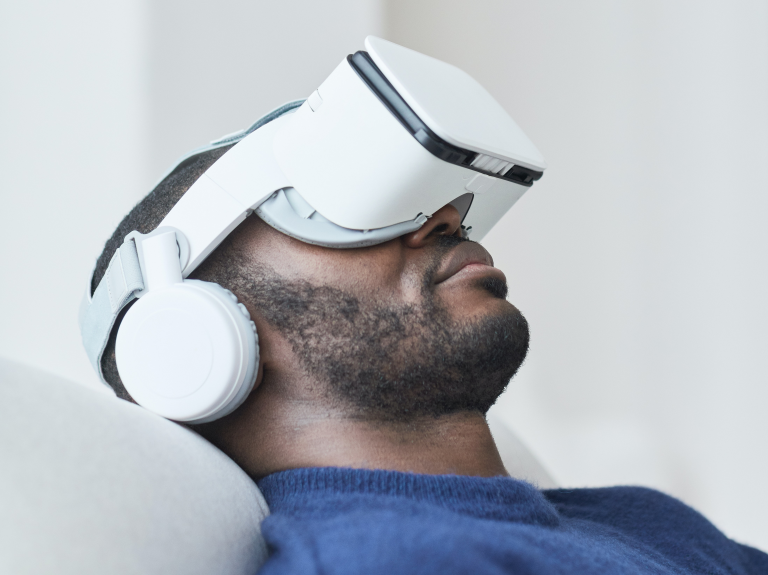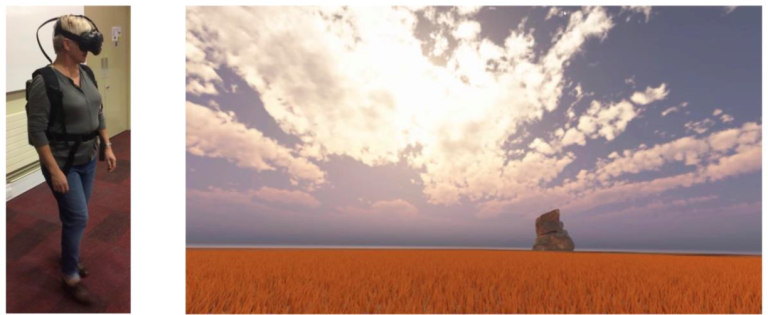Research will develop new tests to diagnose Alzheimer’s disease in its earliest stages
16 March 2023
Dr Dennis Chan (UCL Institute of Cognitive Neuroscience) is leading a £2m project to develop tests using augmented reality that could be widely used to detect Alzheimer’s disease in its earliest stages.

Detecting Alzheimer’s disease early is important as it could enable future treatments to delay or even prevent the progression of the disease. While brain scans can be used to diagnose the condition, they are expensive and not widely available.
The SABRE project, part of a £11m National Institute of Health Research investment, will test spatial navigation and memory using smartphones and wearable augmented reality (AR) devices.
Dr Chan and his colleagues have previously shown that virtual reality-based tests of spatial navigation are highly effective in diagnosing early Alzheimer’s and may also be capable of detecting the condition prior to the onset of symptoms. This is because the regions in the brain’s temporal lobe that underpin spatial behaviour are the first to exhibit degeneration in Alzheimer’s disease.
The researchers will assess these regions, known as the entorhinal cortex and hippocampus, to determine the onset of cognitive impairment in people suspected of having early-stage Alzheimer’s disease.
In adapting the spatial tests from VR to less cumbersome AR and app platforms, the aim of the study is to deliver versions of the tests that will be easy for patients and clinicians to use. To ensure the tests are accessible to all, independent of cultural and language differences, the study will specifically include participants from BAME communities nationwide.
Dr Chan said:
“Detection of Alzheimer’s disease in its very earliest stages will be critically important for future interventions and treatments aiming to stave off progression to dementia. The work of my group and others increasingly indicate that impaired spatial navigation may be one of the earliest, if not the earliest, signs of Alzheimer’s disease.
“However, to maximise the benefit of such work, spatial testing needs to be made available for routine clinical practice such as GP surgeries and memory clinics. The aim of the SABRE project is to deliver these tests and in doing so to revolutionise the diagnosis of early Alzheimer’s disease.”

A screenshot of the simulated environment as seen in the VR headset, through which the participants navigate.
Related
- Dr Dennis Chan’s academic profile
- £11m investment into digital innovations to detect and diagnose dementia
Photo by August de Richelieu on Pexels
 Close
Close

